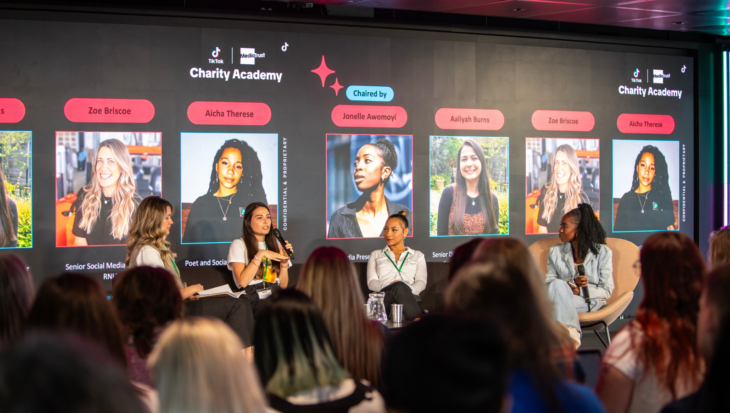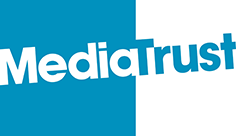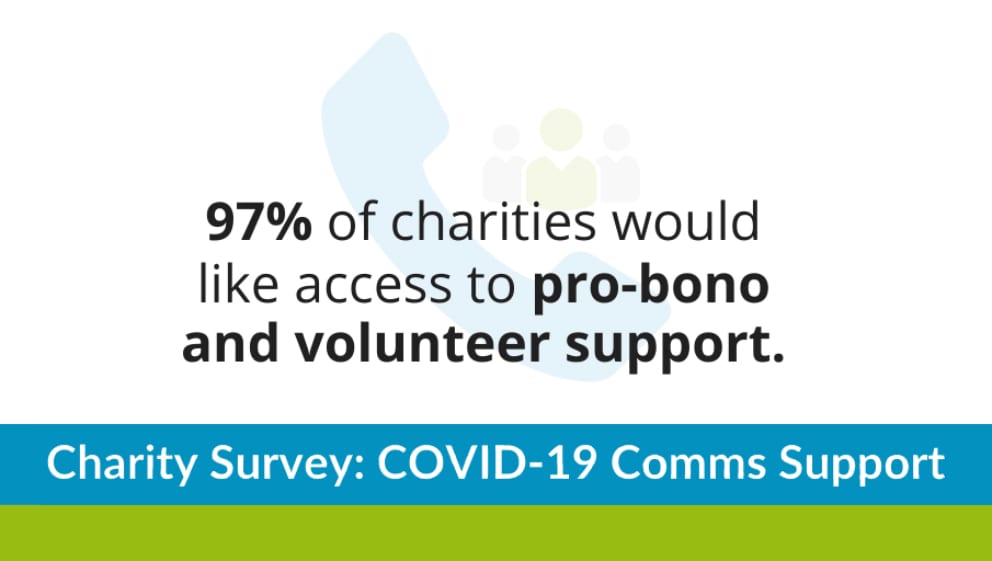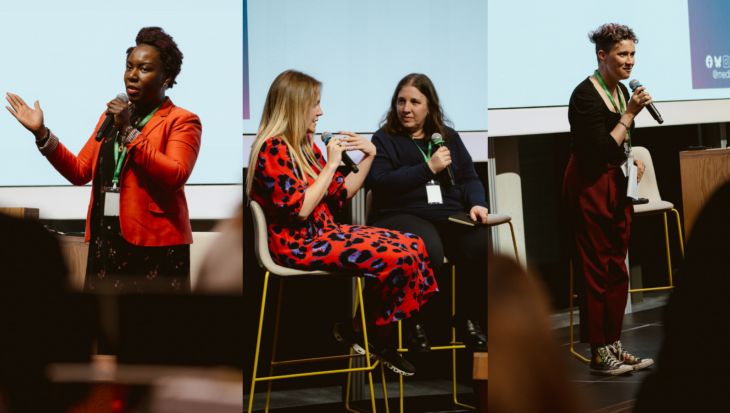Hello from Media Trust.
In the last few weeks, we’ve heard from many charities how COVID-19 is undermining their ability to do essential work while adding to the financial pressure many charities struggle with at the best of times.
As a small charity ourselves, at Media Trust, we’ve also had to make the difficult decision to furlough colleagues and gear up to the challenge of doing more with less. This is of course a position that many smaller charities find themselves in. Since the outbreak of the virus, there has a been a spike in demand for services provided by charities who are often the only touch point and lifeline for people facing homelessness, unemployment, social isolation, domestic abuse and other social issues.
The current crisis has also thrown a spotlight on the digital divide. From the digital skills training for charities we do, we know many charities across the UK are lacking basic digital communications skills. This means that organisations used to face to face delivery are now struggling to move their services online and to use technology and new platforms to support their beneficiaries, stay in touch with volunteers, donors and other stakeholders and raise vital funds.
One of the positives coming out of the crisis is the way organisations have come together to collaborate on initiatives to support charities impacted by COVID-19. Over the past week, Media Trust has been working alongside CharityComms to survey charities to find out their biggest communications challenges and most pressing communications support needs. The full survey findings can be found here.
Of the over 200 responses we received, only 2% said they aren’t worried about communications challenges demonstrating the overwhelming need for support. At the same time, 97% of respondents said they would benefit from pro bono or volunteer support, underscoring the massive opportunity for the media and creative industry to get involved and contribute resources, training and volunteer support.
Small charities with an annual income of under £1m made up 70% of survey respondents which isn’t surprising since 97% of charities in the UK fall within this income bracket. The biggest group of respondents were charities working in health, including mental health which is consistent with the wider charity sector. Other issues and areas of work that were strongly represented included disability, education and training, community groups, children and housing and homelessness.
The survey found that the main communications challenge charities are facing as a result of the coronavirus pandemic is supporting users who would normally have access to face-to-face services, with 61% of respondents highlighting this as a real issue. The challenge of innovating and adapting their services so they can offer beneficiaries remote support is obviously more daunting for charities who are only embarking on that journey now. For other charities, COVID-19 has meant a forced acceleration of the digitisation path they were already on. Either way, one positive from COVID-19 is charities innovating, adapting and future-proofing their service delivery to withstand other unanticipated crises down the line.
Other respondents told us they need support with digital fundraising and creating digital content, with one charity saying, “we need help creating relevant content for digital channels to free up our helpline for urgent enquiries.” Another charity said they are worried about the glut of online content saying, “we need help identifying what is going to cut through.”
Next steps
Over the coming weeks, Media Trust will be taking the following steps in response to the survey. We will be galvanising media and creative industry support for charities and working alongside CharityComms and other partners to provide media, digital and communications training, volunteers and resources.
First, we will be sharing the survey findings with our media and creative industry partners and working with them to develop a response plan of support for charities with their digital and communications needs spanning the immediate, short term and recovery phase.
Secondly, Media Trust will be working with industry experts to create new resources for charities on the specific areas highlighted by the survey which charities can access for free via Media Trust’s Online Resources Hub. We will also be approaching NCVO, NAVCA, ACEVO, the Small Charities Coalition and other umbrella membership organisations to enlist their help to signpost their members and networks to these resources.
Thirdly, Media Trust is upgrading our online Volunteer Platform in anticipation of much more traffic in the coming months. Our platform is somewhere charities can post their specific needs and media and creative industry volunteers can find opportunities to give back to those needs that align with their interest, skills and availability.
We know many media, creative and tech businesses are already thinking about how to ramp up their community support, for instance by matching online donations made via their platforms. But as our survey shows, there’s so much more media businesses can do to help. What we do at Media Trust is match good skills with good causes. The team are poised to ramp up our work matching media industry teams and professionals looking to give back with the charities that desperately need their help. We’re already getting a lot of enquiries from charities wanting to know what kind of help and resources are available. So whether you’re a charity or a potential volunteer, please reach out to us!
At the end of the day, we believe this crisis gives us all an opportunity to challenge what is and enable what could be, using the power of media as a force for good.
Read the findings from our survey: Impact of COVID-19 on Charity Communications



